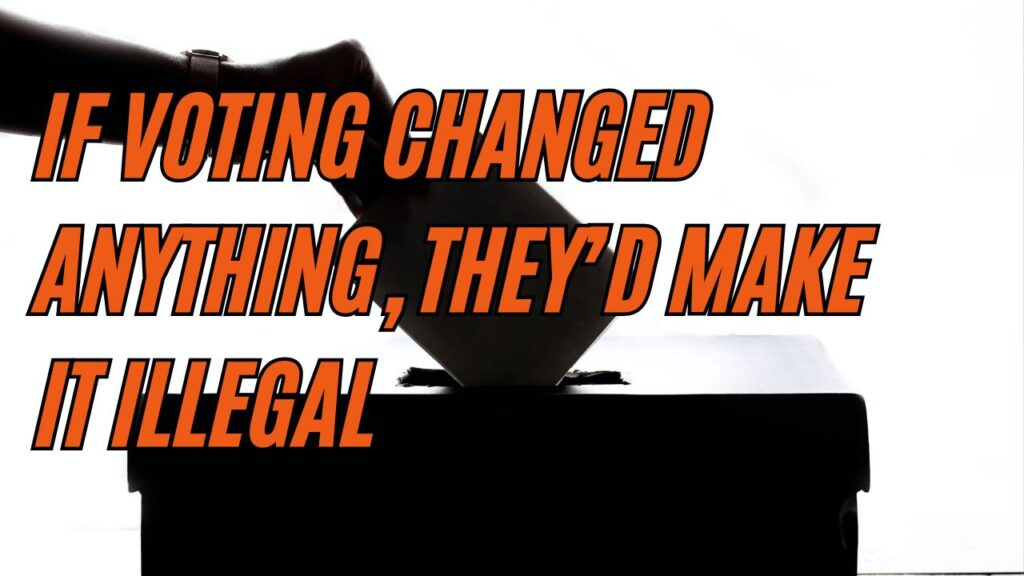
Cynical? How to Break Free
Introduction: Why am I so Cynical?
In today’s rapidly evolving society, it’s not uncommon for individuals to develop a cynical mindset – a protective shell of skepticism and distrust toward the ever-fluctuating world around them. Why are people so cynical nowadays?
It is certainly true enough that the world can be unfair, that people can be cruel, that a dog-eat-dog attitude pays off way too many times, and, to coin a tired old cliché, maybe nice guys do indeed come last.

We all know that political promises are rarely kept, and we listen in sneering disbelief as they promise us the world. This will not be the first nor the last time that a politician betrayed the voters with that old cynical smile. A pretty cynical attitude towards our political leaders is really rather common.
Being cynical, while sometimes justified, can inadvertently lead to a pessimistic outlook on life, affecting personal relationships, mental health, and overall life satisfaction.
People regard the cynical way of looking at life, therefore, as natural but unfortunate. It is a habitual disposition that was pretty much forced upon us by the cruelty of life, our own failures and the inevitable suffering that is bound to come our way.
The objective of this post is to delve into the depths of cynicism, understand its roots, evaluate its impacts, and explore the potential role of practices such as meditation and contemplation in shifting from a cynical to a more positive, accepting mindset.
By illuminating this path, we hope to provide valuable insights for individuals grappling with cynicism and equip them with the necessary tools to navigate their way from having an arid cynical soul, towards a more optimistic perspective. If, then, you have grown cynical

Understanding Cynicism
To fully comprehend the concept of cynicism, we must first define it. The origin is of the Greek word “Kynikos” and comes from a group of philosophers (The Cynics), and the word actually means “canine”. This might indicate the way the other Greeks viewed these people. It was hardly a term of endearment.
The Kynikos were sneeringly distrustful of all human beings and saw little good in anyone. They held a very cynical view of life and were known for showing contempt for law and tradition alike.
Cynicism, in its simplest form, can be described as a general distrust towards human motives, esp selflessness. It is rooted in a belief that people are fundamentally self-interested. It is a mindset, more than a mere negative attitude, that affects one’s interpretation of the world and interactions with others. This is sometimes called “cynical bitterness”.

We have all heard the expression that one might see the world with “rose tinted glasses” but when you are cynical, those very same glasses are splashed with something much less appealing.
From a psychological perspective, cynicism can be seen as a defense mechanism. It protects the individual from disappointment or hurt by setting low expectations for others and the world at large.
This defense mechanism only works in the very short term, because as a long term strategy it fails dismally to produce any kind of life satisfaction. From a brain health point of view, cynicism is fuel to an ever accelerating downward spiral.
Sociologically, cynicism is often a response to perceived social injustices or inequalities, serving as a critique of societal systems and norms. In the face of blatant evil, sometimes a cynical smile can feel like the only sane response.
Characteristic attributes of a cynical mindset include skepticism, negativity, distrust, and a tendency to question the sincerity or goodness of others’ actions. It’s a worldview that focuses on the darker side of human nature, often overlooking the potential for altruism, kindness, and genuine goodness.

Exploring the Roots of Cynicism
The origins of cynicism can be traced back to various factors, both personal and societal. On a personal level, cynicism often stems from a series of disappointments and betrayals that lead to a sense of disillusionment. Repeatedly facing situations where trust is broken, expectations are not met, or fairness seems to be a mere illusion can molde a once trusting individual into a cynic.
Social and cultural influences also play a significant role in laying the foundation of cynicism. The norms and values propagated in an individual’s immediate environment, the attitudes of those around them, and the societal emphasis on success and competition can all contribute to the development of a cynical mindset.
The impact of media and technology cannot be overlooked. We live in a digital age where we are constantly exposed to global issues, negative news stories, and online debates, all of which can foster cynicism.
The conventional wisdom displayed from one social media platform to another shows organized and cynical work to exploit this attitude. This constant exposure can cause individuals to develop a general distrust in people and institutions, adding to their cynical outlook.
Understanding these roots can be the first step toward overcoming cynicism. It allows one to recognize and acknowledge the influences that have shaped their worldview, and provides a clearer path to shift from cynicism to a more positive mindset.

The Effects of Cynicism
Cynicism has significant impacts, particularly on personal relationships and mental health. Due to their inherent distrust of others’ motives, cynics often find it difficult to form and sustain meaningful relationships. They may struggle to trust others, which can result in isolation and feelings of loneliness. This lack of trust can also cause tension and conflict in existing relationships, further exacerbating feelings of isolation.
From a mental health perspective, cynicism has been linked to various issues, including depression, anxiety, and stress. The constant negativity and skepticism associated with a cynical outlook can lead to chronic feelings of dissatisfaction and unhappiness.
Furthermore, cynicism can also create a barrier to seeking help, as cynics may distrust the intentions of mental health professionals or doubt the effectiveness of mental health treatments.
Cynicism doesn’t only affect interpersonal relationships and mental health, but can also impact one’s overall outlook on life, skewing it towards pessimism and negativity. Undeniably, the effects of cynicism can be far-reaching, permeating all aspects of one’s life, making it a critical issue to address.
The Cynical Smile
A cynical mind might manifest as a sarcastic mode of speech and a pessimistic outlook. Sarcastic refers to making cutting jibes where a direct communications would suffice. Pessimistic implies having a dim, distrustful view of life. This is, of course, a distortion of reality that is often perceived by the cynical one as a uniquely accurate viewpoint. Sad, indeed. Compliments are taken as a cynical attempt at manipulation, and an empty attempt to gain favour. The cynical one sees all said about them as a satirical attack upon themselves.

A Cynical and Inapplicable Proposition
As we begin to discuss the antidote to the cynical world view, we should start with gratitude. One who sees gratitude as cynical or as inapplicable is failing to see the beauty in life. If a friend invited you over for lunch, would you assume that they wanted your company, or that the motive was one of contemptuous pity? It is high time to turn this around.
Introducing Meditation and Contemplation
Before diving into the potential benefits of meditation and contemplation, it’s essential to understand what these practices entail. Meditation, at its core, is a practice that involves focusing the mind on a particular thought, object, or activity to train attention and awareness, and achieve a mentally clear and emotionally calm and stable state. It is a centuries-old tradition, deeply rooted in various cultural and religious contexts, yet adaptable to a modern, secular framework.
Gone are the days in which you had to be a monk in order to benefit from meditation. Nowadays we have apps that allow all of us to benefit from meditation. Then again, you might be cynical about such matters. THEN YOU NEED IT ALL THE MORE.
Contemplation, on the other hand, is a form of reflective thought or deliberate pondering over something. It involves deep consideration and active engagement with the subject of thought, fostering a profound understanding and awareness. Although meditation and contemplation are distinct practices, they share similar benefits and can be used complementarily to foster positive thinking and combat cynicism.
Again, guided contemplations are the territory of the better meditation apps. It isn’t about chanting affirmations or trying to convince yourself that the world is made of sugar and spice. Rather it is about developing the capacity to appreciate the real world as it is, not painted black by a pessimistic mind.

Meditation and Contemplation as Tools Against Cynicism
Meditation and contemplation provide a pathway to address cynicism by fostering self-awareness and promoting a more positive perspective of the world. Regular practices of meditation can help reduce stress and anxiety, often linked with cynicism, by promoting a sense of calm and relaxation. It allows individuals to confront their negative thought patterns, offering them a chance to understand, challenge, and eventually alter these cynical perspectives.
Contemplation, with its focus on deep, reflective thought, can provide an individual with the necessary insight into their cynical thoughts and behaviors. By encouraging a deep exploration of personal beliefs and attitudes, contemplation can help uncover the roots of one’s cynicism, paving the way for understanding and change.
Used together, meditation and contemplation can act as powerful tools against cynicism. By promoting mindfulness, acceptance, and positivity, these practices can help individuals shift away from a cynical worldview towards an outlook that is more positive, balanced, and open-minded.

Practical Steps to Implement Meditation and Contemplation
If you don’t want to be forever cynical, it’s essential to incorporate meditation and contemplation into daily routines. Here are some practical steps to get started:
- Start Small: Begin with short sessions of around 5-10 minutes daily. Gradually increase the duration as you become more comfortable with the practice.
- Choose a Quiet Place: Opt for a calm, quiet environment where you won’t be easily distracted. This helps in focusing your mind and achieving a state of relaxation.
- Use an App: Try the different sessions and select some favorites. You can do them in your own time and as many times as you want
- Reflect and Contemplate: Take time to reflect on your thoughts, feelings, and sensations. Recognize any cynical thoughts and consider their origin. Many sessions encourage you to take notes and to deeply consider the fruits of your meditation.
- Maintain Consistency: Regular practice is key. Make meditation and contemplation part of your daily routine to reap their full benefits.
By incorporating these steps into your routine, meditation and contemplation can provide a pathway to challenge and overcome cynicism, leading to a more positive and open-minded worldview. It can help clear the mud from those spectacles of yours. You don’t need rose tinted ones . clear ones will do for now.












